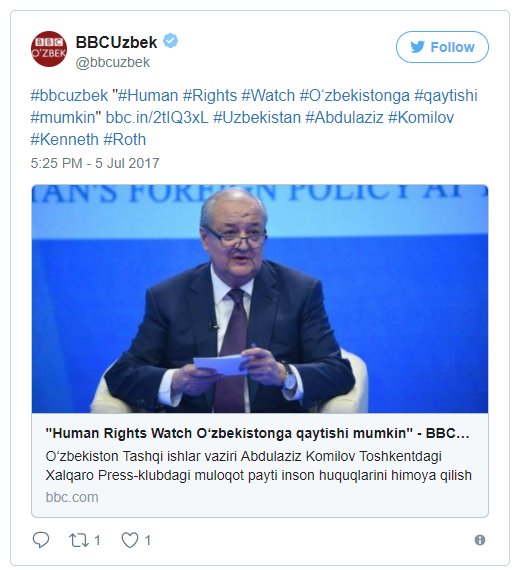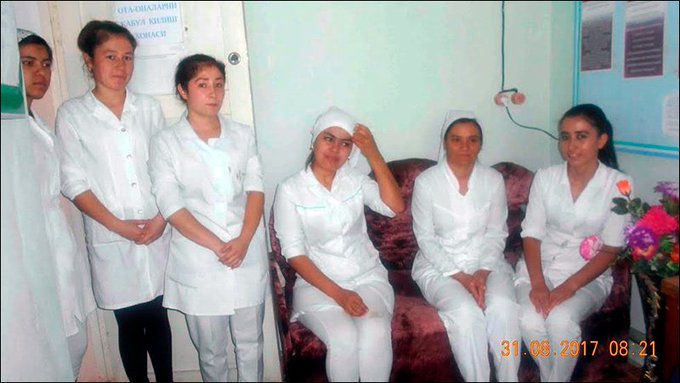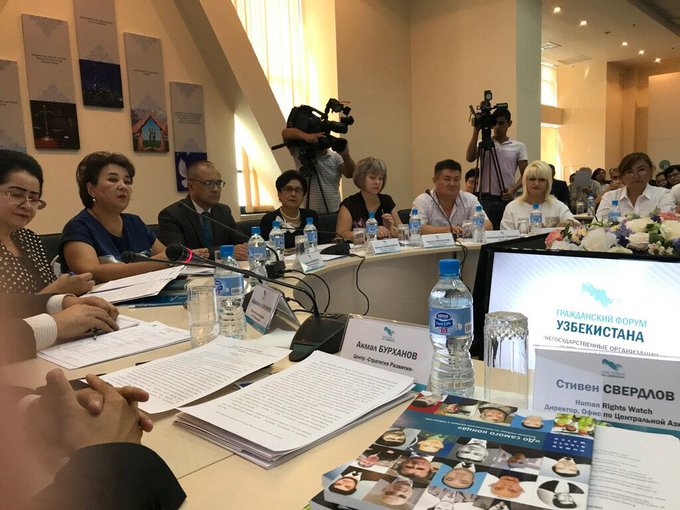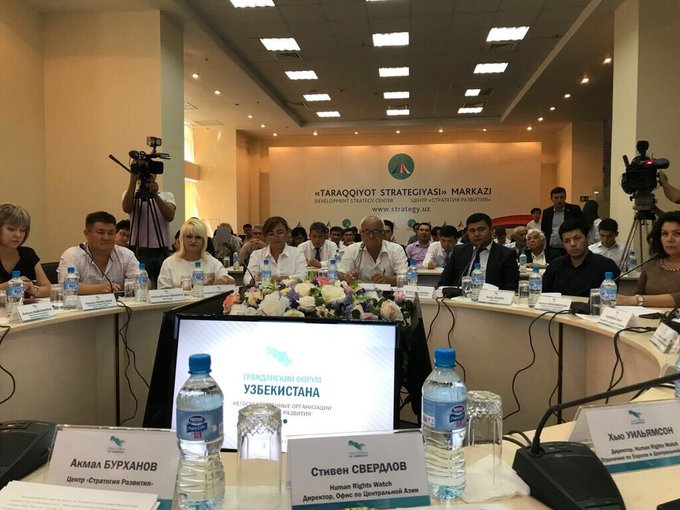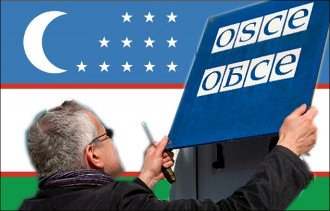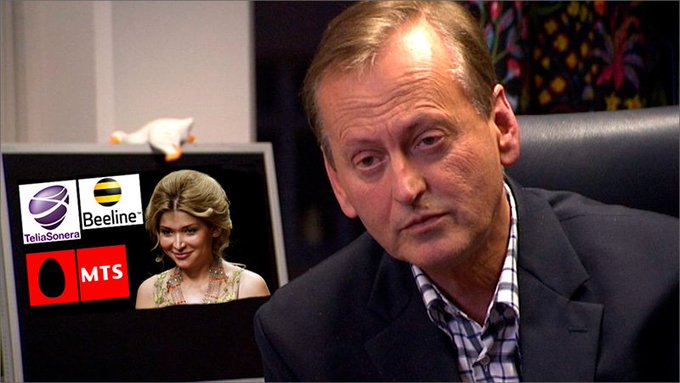Torture and ill-treatment in
Central Asia (Working Session 12,
Rule of Law I, 19 September
2017)
The Coalitions against Torture in Kazakhstan,
Kyrgyzstan and Tajikistan, the Association for Human Rights in Central Asia
(AHRCA, Uzbekistan, established by political emigres in France), the Turkmen
Initiative for Human Rights (TIHR, Turkmenistan, based in exile in Austria) and
International Partnership for Human Rights (IPHR) deplore the fact that law
enforcement officers in Central Asia continue to use torture and other
ill-treatment including electric shocks, suffocation, rape and beatings. The
organizations are calling on the relevant authorities to take immediate action
to prevent torture, punish the perpetrators and provide reparation including
fair and adequate compensation to the victims.
Positive measures
The authorities of the Central Asian countries have taken some positive
steps in recent years and pledged to make further progress on combatting
torture and ill-treatment. For example, improved legislation on safeguards
against torture in detention was adopted in Kazakhstan and Tajikistan in January 2015 and May 2016
respectively, and in February 2017 the Prosecutor General’s Office of Kazakhstan
presented its strategy entitled “Towards a Society without Torture” with
comprehensive measures including independent investigation of all cases of
torture. In Kyrgyzstan the
Coordinating Council for Human Rights under the Government developed a draft
Action Plan for the implementation of the principles of the Istanbul Protocol
for 2017-2020, which aims to improve investigations into allegations of torture
and ill-treatment. In 2012 Turkmenistan
included an Article on “torture“ in its Criminal Code with a definition that is
in line with that contained in the Convention against Torture, and legal
provisions were introduced for independent medical examinations of prisoners.
In the last year amendments to the Law on the Ministry of Internal Affairs of Uzbekistan unequivocally forbid law enforcement
officials to use torture or ill-treatment, and legislation was to adopted to
introduce video and audio recording of interrogations of criminal suspects by
2018.
However, some of these
measures have yet to be implemented in practice and other major challenges remain.
Torture and ill-treatment continue to be widely used
Torture and other forms of
ill-treatment still constitute a serious problem in Central Asia. In 2016 and
the first half of 2017 the NGO coalitions against torture registered 163 / 1111 new cases of torture or
ill-treatment in Kazakhstan, 112 / 75 cases in Kyrgyzstan, and 57 / 33 cases in
Tajikistan. These figures only represent the tip of the iceberg as many victims
of torture refrain from lodging complaints for fear of reprisals or because
they have lost hope of attaining justice. Given the closed nature of
Turkmenistan and Uzbekistan it is difficult to establish estimates of incidents
of torture and ill-treatment, but results from a survey conducted by the NGO
Turkmen International Lawyers’ Association in 2016 indicate that 90 percent of
people detained by law enforcement bodies are subjected to psychological or
physical pressure. In Uzbekistan
torture continues to be routinely used in places of deprivation of liberty run
by the National Security Service, as evidenced by the numerous statements of
victims and former prisoners received by AHRCA over the past year.
CASE
EXAMPLES:
On 19 June
2015 Yusuf Mamed-ogly Pirigam was arrested on drug-related charges and alleges
that in Chuy district police station in Kyrgyzstan’s capital Bishkek, police
officers beat him and put a plastic bag over his head to force him to
“confess“. He lost consciousness and during the night he was taken to hospital
by ambulance. The doctor on duty reportedly found that Pirigam had two
fractured ribs. On 2 July 2015 he lodged a complaint with the prosecutor’s
office of Chuy district, but prosecutors decided that no investigation was
needed. Since then the case has been opened and closed several times, but
investigations have not been conducted effectively; in 2017 the case was
transferred for investigation to the State Committee for National Security.
On 29
August 2015 law enforcement officials of the town of Vakhdat, near Tajikistan’s
capital Dushanbe, arrested 35-year-old Umar Babazhanov. At the police station
they beat him repeatedly as he was lying on the floor of a corridor and as a
result he lost consciousness and was taken to hospital. Umar Babazhanov never regained
consciousness and died on 9 September 2015. A forensic examination concluded
that he had died from a traumatic brain injury. Since 2015 the procurator’s
office in Vakhdat has closed the investigation into the case
several times and the Prosecutor General’s Office has repeatedly referred it
back to Vakhdat to resume investigating. Most recently, the Vakhdat
prosecutor’s office closed the case in June 2017. The lawyer acting for Umar
Babazhanov has repeatedly lodged complaints with the Prosecutor General’s
office, the human rights Ombudsman and the President complaining about the lack
of effectiveness of the investigation; obstruction of access to case materials;
and failure to question witnesses.
After the
failed July 2016 coup attempt in Turkey, the Turkmenistani authorities began a severe crackdown on individuals
accused of being associated with the Hizmet movement and its leader, Fethullah
Gülen, who has been accused of masterminding the coup attempt in Turkey. To our
knowledge, over 150 people were detained in Turkmenistan in September/October
2016 and April/May 2017, as part of the anti-Gülen crackdown. Eighteen of them,
detained in September/October last year, were handed down prison sentences ranging
from 12 to 25 years after a closed, two-hour trial in February 2017, which did
not meet international fair trial standards. There are credible allegations
that they were held incommunicado during pre-trial detention and that they were
being held naked in darkened rooms for long periods and beaten. Unconfirmed reports
claim that another man, arrested at the same time, died in custody as a result
of torture.
In Uzbekistan, a former prisoner who was released from detention in July 2016, told
AHRCA on condition of anonymity that his former cell-mates reported that “even
the guards in prison colonies beat prisoners. Prisoners are tortured in order
to force them to cooperate with the National Security Services, to get them to testify
against people that they don’t even know [...] they are just shown a photo and
told a name and told to write out a text dictated to them. This practice is
particularly used in relation to detainees who have returned to Uzbekistan from
abroad“.
In all five countries, victims of torture and ill-treatment face serious
disincentives to lodging complaints.
Kazakhstani law enforcement and prison officials attempt to obstruct the registration
of torture complaints by warning victims that they will be held criminally
responsible if they provide false information. In Kyrgyzstan, officials of the
Prosecutor General’s office have stated their intent to initiate criminal
proceedings against victims of torture who withdraw their complaints or refuse
to press charges against alleged perpetrators. Across Central Asia protection programmes for those who complain about
torture and for witnesses do not function effectively and many refrain from reporting
such crimes for fear of reprisals or withdraw complaints after law enforcement
officers subject them to or threaten them with further abuse.
Another obstacle for victims in their struggle for justice is the
authorities’ failure to ensure that investigations
are conducted promptly, thoroughly, impartially and independently. None of
the five countries has yet put in place independent mechanisms to receive and
investigate complaints, despite recommendations to this effect issued to each
of them by the United Nations (UN) Committee against Torture in recent years.
While steps have been taken particularly in Kazakhstan and Tajikistan to make investigations
of torture more effective by strengthening the role of prosecutors, police
officers still carry out the actual investigative activities in many cases. In
Kyrgyzstan investigative activities into allegations of torture and other
ill-treatment are carried out by agents of the State Committee for National
Security, an agency that lacks transparency, has close ties with law
enforcement agencies, and is itself often implicated in torturing and ill-treating
detainees. Even when investigations are conducted exclusively by prosecutors,
this does not ensure the effectiveness of the investigation. Prosecutors in
Central Asia have an inherent conflict of interest originating from their roles
of both taking forward the criminal prosecution and supervising the legality of
the investigative process.
Kazakhstan, Tajikistan and Turkmenistan have introduced articles on “torture“
into their criminal codes with definitions of this crime that are in line with
the UN Convention against Torture. We call on Kyrgyzstan and Uzbekistan to
follow their example. However, impunity for torture and ill-treatment remains a
challenge across the region. Central Asian human rights organizations
‘monitoring work reveals that most perpetrators are not brought to justice. The
authorities of all Central Asian states fail to publish comprehensive
statistics on complaints, criminal cases, convictions and means of redress
relating to torture and other ill-treatment covering all relevant articles of
the respective criminal codes. In those countries where some official figures are
publicly available they reveal large discrepancies between the number of
complaints lodged and the investigations subsequently opened; and the number of
guilty verdicts handed down is typically very low. For example, according to
the Prosecutor General’s Office in Kyrgyzstan, 435 complaints were received in
2016; only 35 criminal cases were opened, and only 20 cases reached the courts.
Tajikistan has published statistics of all the cases opened for “torture“ under
Article 143-1 since its introduction into the Criminal Code in April 2012. Only
nine criminal cases were initiated; one perpetrator was given a suspended
sentence and three were sentenced to between one and seven years’ imprisonment.
According to the authorities of Turkmenistan, not a single criminal case has
been brought in this country since Article 182 on “torture“ was introduced in
August 2012.
Access of victims of torture or their bereaved families to reparation is very limited in Central
Asia: in Kazakhstan and Tajikistan NGOs are aware of six cases in each of the
two countries where compensation has been awarded for moral damages sustained
through torture. These are positive steps and the other countries should make
progress in this direction too. At the same time, more has to be done to ensure
that the amounts awarded are fair and adequate. Domestic law in all five
countries does not provide for the right to rehabilitation services for victims
of torture or their bereaved families, and NGOs in Kyrgyzstan and Tajikistan
have used their own funds to try to ensure that these needs are met. Other
forms of reparation such as measures of satisfaction and guarantees of
non-repetition are not available in any of the Central Asian countries.
Kazakhstan and Kyrgyzstan ratified the Optional Protocol to the Convention Against Torture (OPCAT) and set
up national preventive mechanisms
(NPMs), which began visiting places of deprivation of liberty in 2014. Both
NPMs have proved themselves to be important safeguards against torture,
although Kazakhstan’s NPM requires further improvements including being able to
function with full independence. Tajikistan should build on the experience of
the Monitoring Group established under the Ombudsman’s Office, which has
conducted limited monitoring of places of deprivation of liberty since February
2014, ratify OPCAT and set up its own NPM. There is no independent oversight of
detention facilities and prisons in Uzbekistan or Turkmenistan, and independent
international human rights monitors continue to be denied access to
Turkmenistan.
Recommendations to the authorities of Kazakhstan, Kyrgyzstan,
Tajikistan, Uzbekistan and Turkmenistan:
The human rights groups
jointly issuing this statement are calling on the authorities of the five
Central Asian states to implement the following recommendations as a matter of
urgency:
• Legislate that detainees under any form of detention are given access
to all fundamental legal safeguards in detention and at the time of arrest ,
consistently implement these provisions in practice and bring to justice
anybody who fails to provide or obstructs access to these safeguards.
• Compile and publish comprehensive statistics on cases of law
enforcement agents and other officials accused of, charged with and punished
for failing to implement these legal safeguards. Detail the types of
punishments handed down.
• Ensure that complainants and witnesses are protected against reprisals
as soon as the authorities receive the complaint/witness report and that
appropriate disciplinary or criminal measures are imposed against perpetrators
for such actions.
• Put in place accountable mechanisms tasked with receiving complaints
and conducting prompt, thorough, impartial and independent investigations into
allegations of torture and other ill-treatment.
• Bring to justice all perpetrators of torture and other forms of
ill-treatment.
• Kyrgyzstan and Uzbekistan: Bring the definition of
torture contained in the countries’ criminal codes in line with the definition
included in the Convention against Torture.
• Put in place a unified system to register cases involving torture and
other forms of ill-treatment and compile comprehensive statistics disaggregated
by sex, age and, where applicable, charges brought, on complaints,
investigations, prosecutions, convictions and means of redress. Ensure that not
only cases under the article entitled “torture” of the criminal code are
included, but all cases involving allegations of torture or other forms of
ill-treatment such as those opened under charges of “abuse of authority” and
“exceeding official authority”.
• Ensure that victims of torture or their bereaved families have access
to all forms of reparation, including fair and adequate compensation from the
state budget, free rehabilitation, measures of satisfaction and guarantees of
non-repetition.
• Kazakhstan: Ensure the full
independence of the country’s National Preventive Mechanism.
• Tajikistan, Uzbekistan,
Turkmenistan: Ratify the Optional Protocol to the Convention Against Torture
and set up an independent, competent and fully resourced National Preventive
Mechanism.
• Fully implement all recommendations issued to Kazakhstan, Kyrgyzstan,
Tajikistan, Turkmenistan and Uzbekistan by relevant UN treaty bodies and
procedures.


